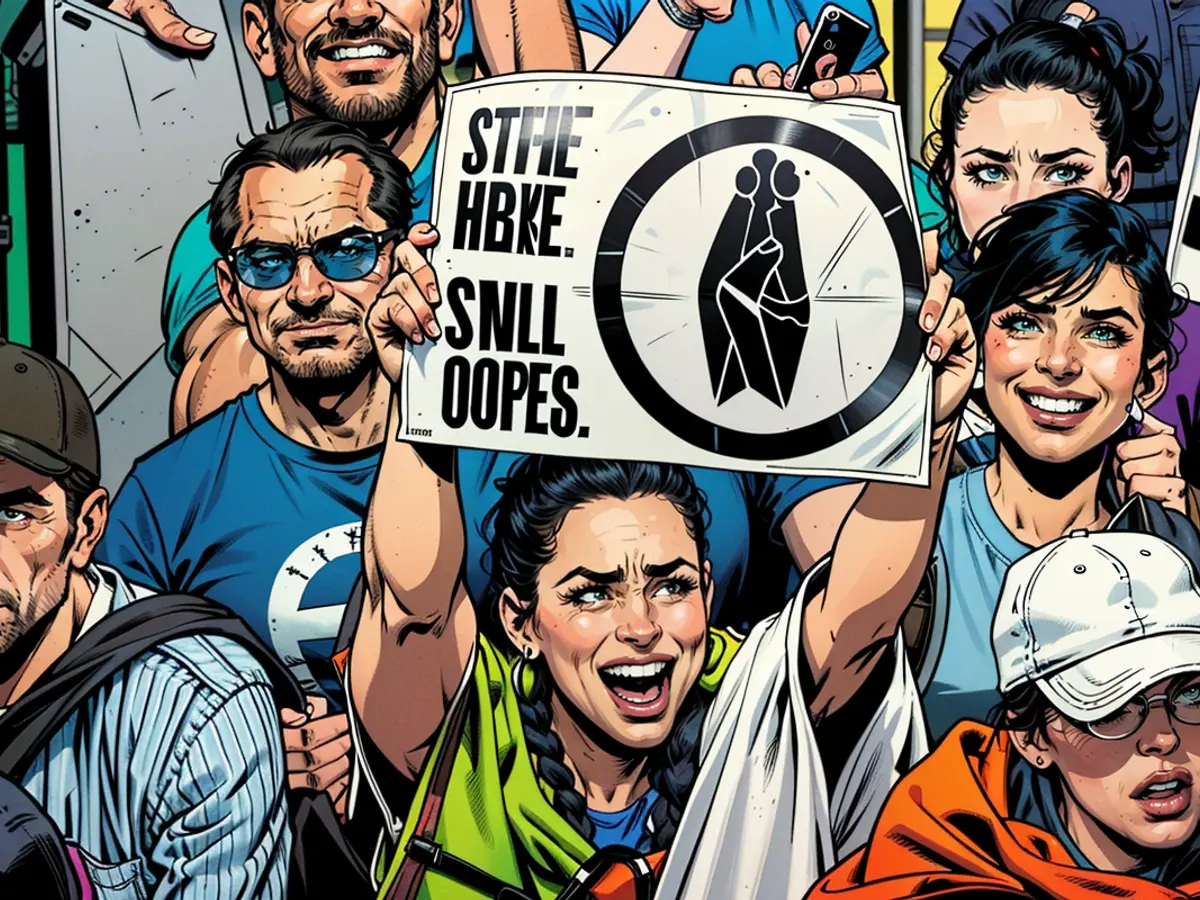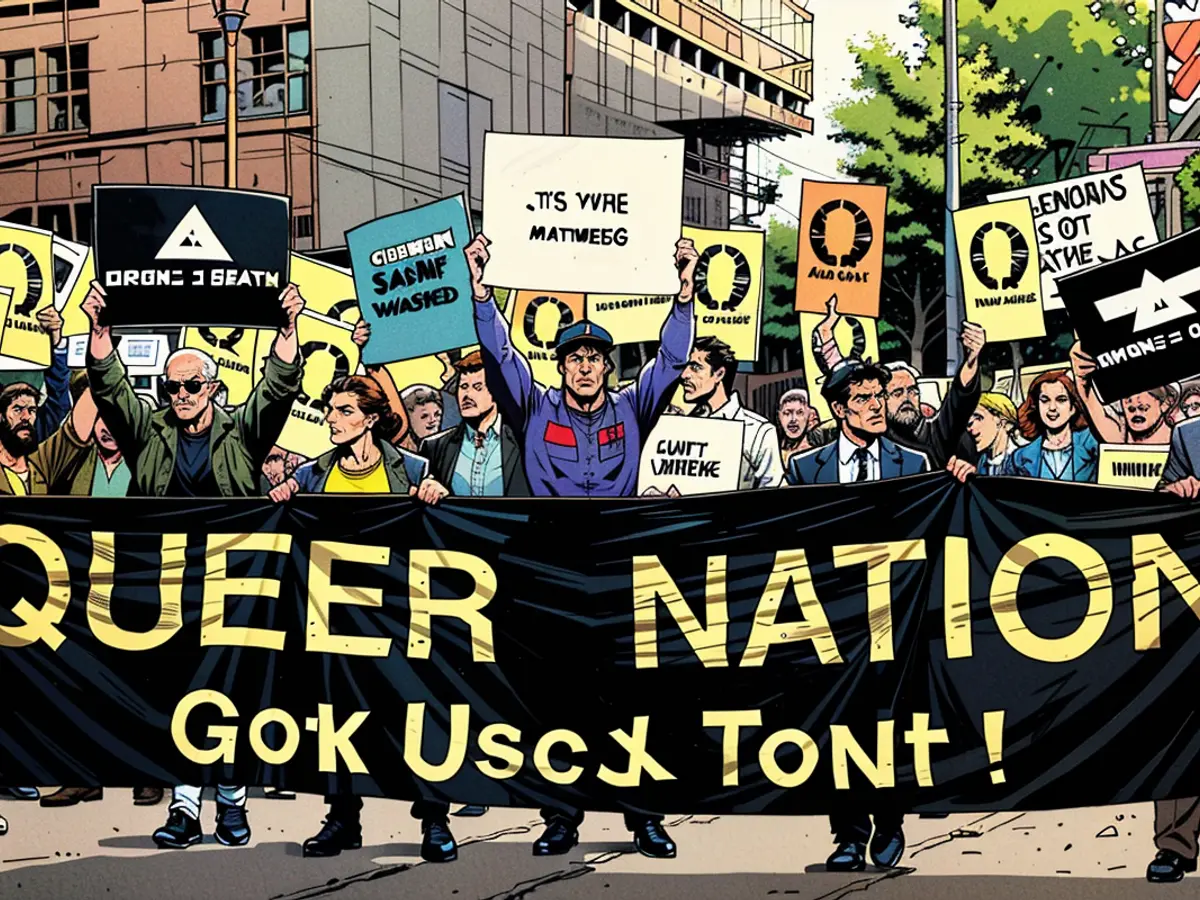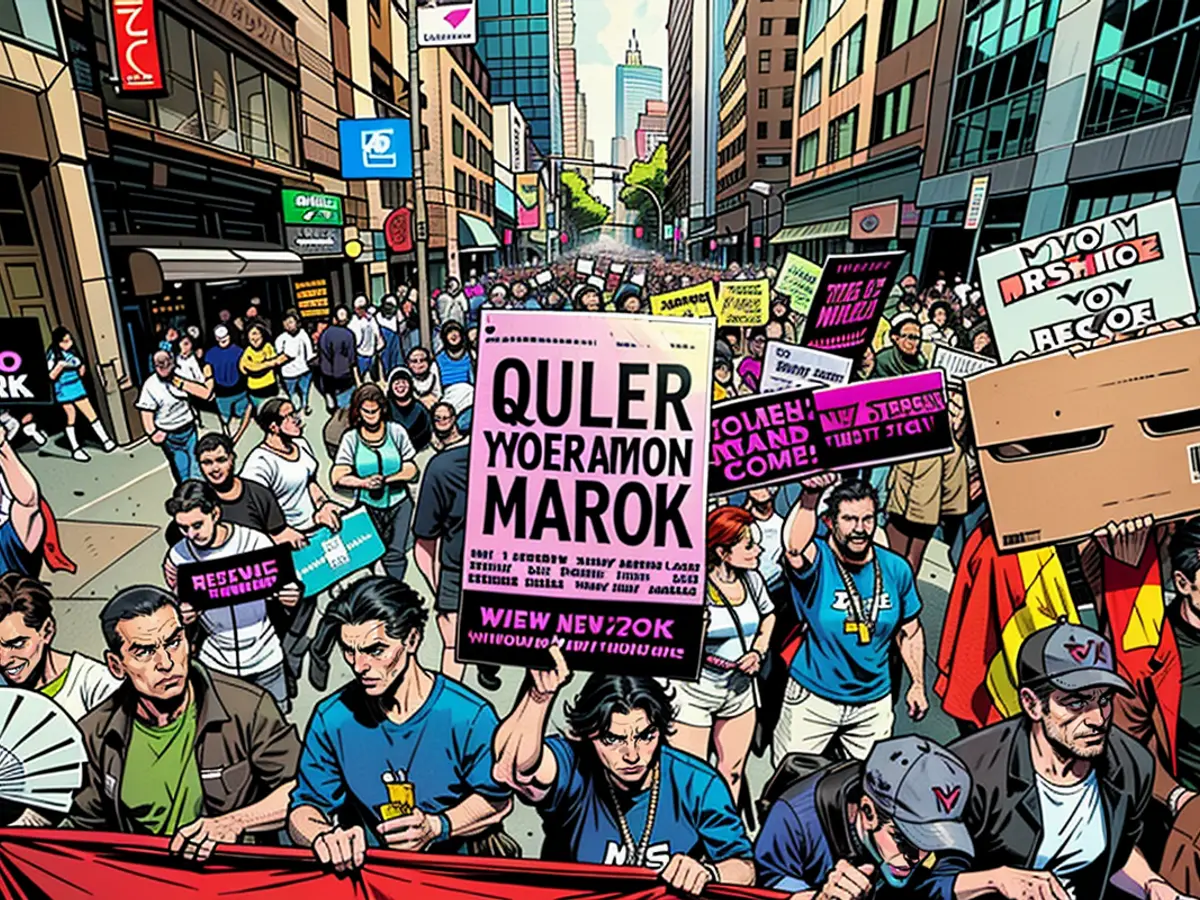Understanding the concept of being queer
Once, LGBTQ activists who saw themselves as queer proudly showcased their uniqueness. Groups promoting LGBTQ rights like Queer Nation shouted "We're here! We're queer! Get used to it!" as a rallying cry for all members of the community.
Now, the term "queer" is a preference for some members of the LGBTQ community who enjoy its inclusive, transformative essence. While others might dislike the word due to its past usage, many who embrace the label find it empowering as it can encapsulate both sexuality and gender identity throughout a person's life.
"Queerness is hazy in meaning - essentially, anything that is not the norm," explained Maya Satya Reddy, founder of the Queer Asian Social Club which advocates for better visibility of LGBTQ Asian Americans in media. "For me, queerness has granted me room to move between identities and what a term means to me at different times."
The meaning behind being the Q in LGBTQ:
What queer represents today
"Queer" is a horizon-expanding term used by some LGBTQ individuals to describe their sexuality, gender expression, or both. It appeals to those who consider other terms like "gay" or "bisexual" too limited or rigid, as well as people with evolving, fluid identities.
Samuel Allen, a clinical assistant professor at Northwestern University and a therapist at its Family Institute who focuses on LGBTQ health and wellbeing, shared, "Queer covers all the identities and lived experiences included under the LGBTQ umbrella - those who might identify as lesbian, gay, bisexual, or transgender."
In addition, nonbinary individuals - those whose gender identity falls outside the binary categories of male or female - might use the term "queer." It may suit those with a less strict or static relationship to gender.
The past of "queer": how it was used against the LGBTQ community

"Queer" entered the English lexicon during the early 16th century, initially meaning unusual, peculiar, or out-of-place. It wasn't until the end of the 19th century that the word was used homophobically. In 1894, John Douglas, a British nobleman, referred to homosexual men as "snob queers," including Oscar Wilde.
The playwright sued Douglas for libel, yet when the letter was made public, Wilde faced charges of gross indecency, a criminal offense in England. Wilde was tried, convicted, and sentenced to two years of hard labor, harming his reputation as a celebrated writer and diminishing his savings.
This marked the shift from "queer" being a neutral description to a derogatory term intended to oppress LGBTQ individuals, often with physical violence.
Why some LGBTQ people prefer the phrase "queer"
Queer is purposefully ambiguous, stated Kaila Adia Story, an associate professor at the University of Louisville who analyzes the intersection of race and sexuality. This linguistic freedom allows those who embrace the label to define themselves without having to specify the specifics of their sexuality while making it clear they reject heteronormativity, the idea that straight is the presumed sexual orientation.
Story continued, "Queer represents not allowing society, institutions, friends, or loved ones to define who you are or who you wish to become. It signifies defining yourself for yourself and living boldly and fearlessly."
The term also challenges the rigid expectations and stereotypes associated with words like "gay" and "lesbian" that explicitly signify gender.
"Identity doesn't have to have just one specific definition, and 'queer' provides space for people to discover and embrace who they are," shared Dr. Lexx Brown-James, a therapist and sex educator co-hosting the webseries "Queer Sex Ed" from It Gets Better.

Young people, in particular, have shown a preference for the word as they are growing up during a time of expanding and diverse sexual and gender identities. Before nonbinary was widespread, the more inclusive "queer" definition naturally evolved into the term "genderqueer" to include individuals with non-male or non-female gender identities.
"The LGBTQ acronym doesn't fully encompass them," said Allen. "Queer presents a broader outlook."
Reddy shared that she prefers using "queer" as an identity rather than "gay" or "lesbian" because these terms often evoke specific images that don't match her personal perception.
"That doesn't feel like me," she said. "Queer, for me, holds the space between rigid gender and sexuality divisions."
A study found that Gen Z adults have a higher percentage of identifying as LGBTQ compared to older generations. "Queer" is becoming popular among the LGBTQ community, but it's not the preferred term for everyone, especially those from older generations who may find it offensive due to its use as a slur during the 20th century.
Initiative to Reclaim 'Queer'
In 1990, members of the activist group ACT UP in New York City started Queer Nation, an advocacy movement that aimed to end discrimination against all LGBTQ people. These activists were among the first to reclaim the word "queer" as a collective identifiers and a unifying term for all LGBTQ individuals. Scholar Coles explained that at the time, the word "queer" was still considered a slur. However, Queer Nation embraced the term boldly, saying in a leaflet distributed at the New York Pride Parade in 1990, "Using 'queer' is a way of reminding us how we are perceived by the rest of the world [...] It is also a sly and ironic weapon we can steal from the homophobe's hands and use against him."
The adoption of "queer" had significant political implications, according to Coles. "Instead of treating the concerns of gay men, lesbians, bisexuals, trans folks, and other groups as largely distinct from one another, 'queer' offered a single unifying word that allowed them to band together and fight for their shared interests with greater political influence."

Academics like Teresa de Lauretis and Eve Kosofsky Sedgwick followed Queer Nation's lead and incorporated the term into their work. De Lauretis organized a 1990 conference of queer theorists, while Sedgwick, who helped popularize the term "queer studies" instead of "gay and lesbian studies," said in a 1993 book that "queer" offers an "open mesh of possibilities, gaps, overlaps, dissonances and resonances" in discussions of gender and sexuality.
Television series like "Queer as Folk" and "Queer Eye for the Straight Guy" contributed to the term's cultural exposure and altered the meaning of "queer," no longer associating it with strangeness and difference from the sexual norm, but with self-conscious pride.
In 2016, the LGBTQ media advocacy organization GLAAD recommended that media outlets use the longer version of the acronym to include the Q for "queer." Over time, this led to "LGBTQ" becoming the preferred acronym for many media outlets.
Controversy Around 'Queer'
In spite of its prevalence, the use of "queer" remains contentious amongst LGBTQ people, especially those from older generations. The late playwright and LGBTQ rights activist Larry Kramer, for example, vehemently disapproved of the term as an identifier, telling a Yale University audience in 2009, "I am not queer! And neither are you. When will we stop using this adolescent and demeaning word to identify ourselves?"
Younger generations may not comprehend the depth of trauma associated with the word "queer," but for older generations of activists, it's a painful reminder of abuse from the past. "It can feel hard to see a word that was used to harm you being celebrated and used widely," said Dr. Lexx, a therapist and sex educator.
The disagreement over the term "queer" can present an opportunity for LGBTQ people to engage in dialogue about its history and meanings. Reddy expressed that "I identify this way because that's how I feel. A person from a different generation may not like or feel comfortable about the word 'queer.' That's an opportunity for us to discuss why that is and consider how we can create space for everyone."
For many young individuals, finding a term to describe their identity can be liberating, noted Allen. But he also hopes that these young people will understand the word's historical context. "My hope is that they use the term intentionally and with awareness of its history."

Read also:
In the context of LGBTQ rights and identity, some individuals find the term "queer" empowering due to its inclusive and transformative nature, while others may have negative associations due to its historical usage as a slur.
Samuel Allen, a clinical assistant professor at Northwestern University, explains that "Queer covers all the identities and lived experiences included under the LGBTQ umbrella - those who might identify as lesbian, gay, bisexual, or transgender."








